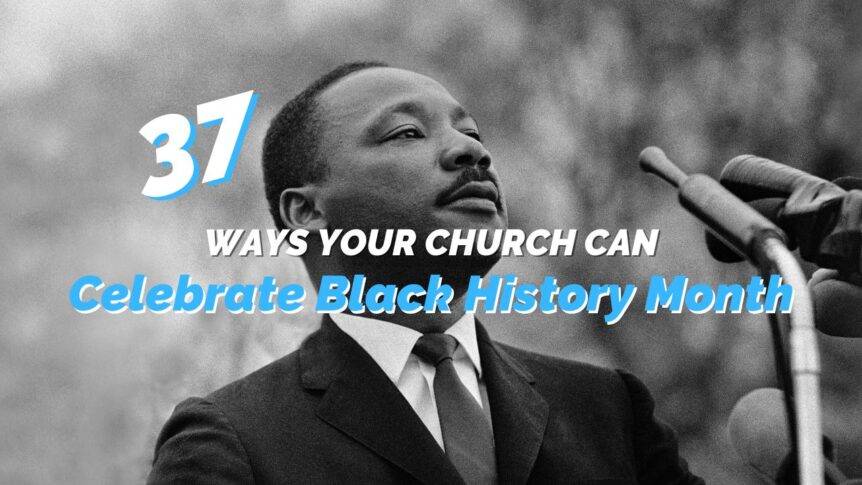February is when we celebrate Black History Month. From Sunday school lessons about inspiring leaders to a panel discussion with a guest speaker, it’s important to recognize this history. We’ll discuss just a few Black History Month ideas for church.
Western Church partnerships can honor Black History Month in several ways which we’ll discuss later. As a church leader, you must be proactive and educate yourself and your community.
By celebrating Black History Month, we are honoring those who came before us and those around us. It’s a time to learn and reflect, so let’s find out 12 different Black History Month Ideas for church we can incorporate celebrating into our Sunday.
Estimated reading time: 11 minutes
Table of contents
- The Story of Black History Month
- Why Should Churches Celebrate Black History Month?
- 12 Ideas to Bring to Church on a Sunday
- Songs to Sing on a Sunday
- “Stand By Me” Written and originally performed by Ben E. King
- “A Change is Gonna Come” Written and originally performed by Sam Cooke
- “Talkin’ Bout a Revolution” Written and originally performed by Tracy Chapman
- “Celebration” Written and originally performed by Kool & The Gang
- “Lean on Me” Written and originally performed by Bill Withers
- Poems to Read
- More Than Just History
- More Resources on Black History
The Story of Black History Month
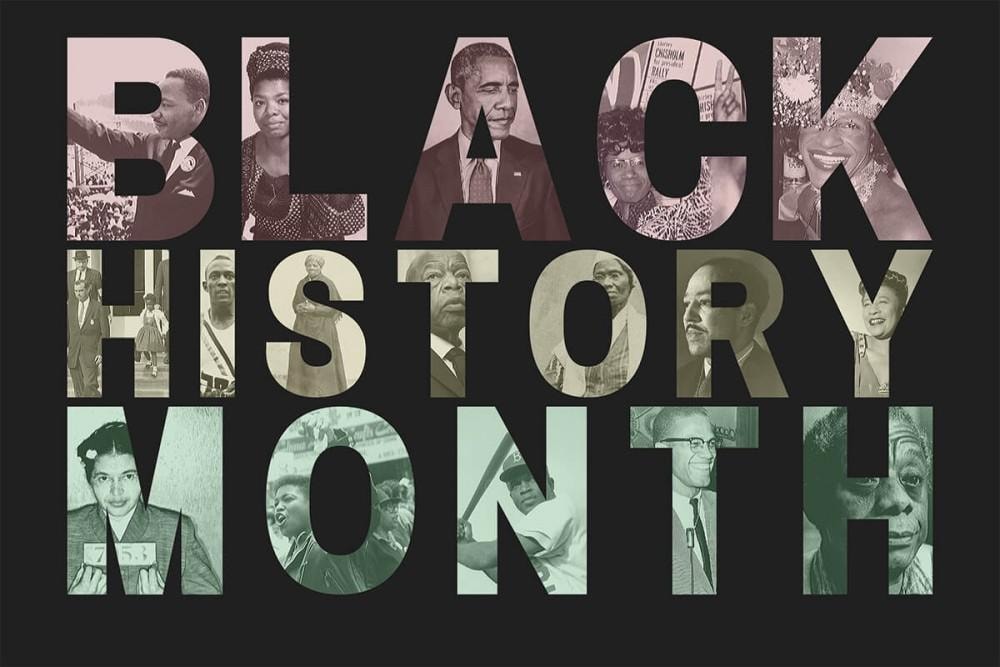
Born as a sharecropper in 1875, Carter G. Woodson went on to become a teacher and the second African American to earn a doctorate from Harvard. He founded the Association for the Study of African American Life and History in 1915 and eventually became known as the “father of Black history.”
On Feb. 7, 1926, Woodson announced the creation of “Negro History Week” to encourage and expand the teaching of Black history in schools. He chose February because the month marks the birthday of the two most famous abolitionists of the time — Frederick Douglass and Abraham Lincoln. Feb. 1 is also National Freedom Day, a celebration of the ratification of the 13th Amendment, which abolished slavery in the US.
By the 1940s, schools in Woodson’s home state of West Virginia begun expanding the celebration to a month, and by the 1960s, demands for proper African American history education spread across the country. Kent State’s Black United Students proposed the idea of a Black History Month in 1969 and celebrated the first event in February 1970. President Gerald Ford officially recognized Black History Month in 1976 during the US bicentennial.
Why Should Churches Celebrate Black History Month?
As believers, we care about justice issues because Jesus Christ cares about justice issues.
“Yet the LORD longs to be gracious to you; therefore he will rise up to show you compassion. For the LORD is a God of justice. Blessed are all who wait for him!” – Isaiah 30:18
The Bible says a lot about the oppressed and the oppressor and therefore we care about oppression too.
“The people of the land practice extortion and commit robbery; they oppress the poor and needy and mistreat the foreigner, denying them justice.” – Ezekiel 22:29
He also speaks clearly about unity and celebration of cultures. So, we, too, move toward unity and celebrate diversity. Loving one another and treating others with respect, dignity, and kindness is the sign of a true believer, and advocating for those who are historically disenfranchised or marginalized is the sign of one who shares God’s heart for justice. We must celebrate black church life in an honoring way.
12 Ideas to Bring to Church on a Sunday

Inspiring Stories
Bring Black History events into your sermons! U.S. Black history is full of compelling stories that illustrate the biblical truth you’re sharing each week. You have enough great stories to share that you could fill an annual preaching calendar, much less a month. Black History Month is a great place to start. The best way to get these stories is to make African Americans history a regular part of your reading habits. But here are a few stories to get you started in your research.
The Underground Railroad
You probably know the basics. The underground railroad was a network of people and places that helped slaves go from slavery in the South to freedom in the North. It’s estimated that 100,000 slaves used this system to find their freedom in the first half of the 19th century. The stories of famous participants like Harriet Tubman make great illustrations, particularly if you’re preaching on biblical themes of freedom, redemption, hope, and courage. If you happen to live in an area of the country where the Underground Railroad was strong (such as Iowa, Indiana and Ohio), try to leverage local stories. It’ll take some digging, but a nearby librarian or museum curator can likely help.
George Liele
The story of George Liele has often been overlooked when the great stories of American missionaries are told. Liele was born into slavery in Virginia and became a Christian in 1773. He started preaching to fellow slaves soon after his conversion. In 1978, his master, a British loyalist, set Liele free. To pay for the freedom of his wife and four children, Liele became an indentured servant on a Jamaican-bound ship. He soon repaid his debt and began preaching to the island’s slaves as a free person. A decade before William Carey left for India, Liele became the first Baptist missionary. In 2020, the Southern Baptist Convention recognized an annual George Liele Church Planting, Evangelism and Missions Day on the first Sunday of February. His story fits well within many sermon topics but particularly ones dealing with missions and evangelism.
John Lewis & Bloody Sunday
March 7, 1965 was a turning point in the fight for civil rights in the United States. On that day, John Lewis and 600 others met for prayer at a downtown church. Then they walked through the streets of Selma, Alabama. As they arrived at the Edmund Pettus Bridge on the way out of town, they met 150 Alabama state troopers, sheriff’s deputies, and posse men who told the demonstrators to disperse. Just 65 seconds after a two-minute warning was announced, the troopers attacked the demonstrators with clubs, bullwhips, and tear gas. John Lewis, who later became a longtime Georgia congressman, suffered a skull fracture and was one of 58 demonstrators treated for their injuries at a local hospital. As the nation watched those events on their nightly news broadcasts, it became a catalyzing event for the passage of the Voting Rights Act of 1965.
Panel Discussions
A panel discussion is any event where a group of speakers shares their perspectives on a variety of topics. You should choose a main topic for each discussion, giving your speakers an idea of what questions to expect.
Here are a few suggested topics for your panel discussion:
- Racial justice
- Civil rights
- Equity and equality
- Cultural traditions
- Black achievements throughout history
- Social justice
To organize your panel discussion, choose a decent sized group of panelists. Panelists can include internal employees, executives, and representatives from other companies. Next, create a list of questions related to the topic. At your event, allow each panelist to introduce themselves and answer each question. Remember to leave room at the end of your event for an audience Q&A session.
Host an honest panel discussion on race related issues with interactive questions from the congregation. Hit the tough issues that make people feel uncomfortable. We can never move forward in becoming more like Jesus in this area without this kind of loving but challenging dialogue.
Guest Speaker
No matter where you live, there are probably some amazing guest speakers you can bring in either each Sunday or one of the Sundays of February. Invite them into your church, and learn from them!
Art Display
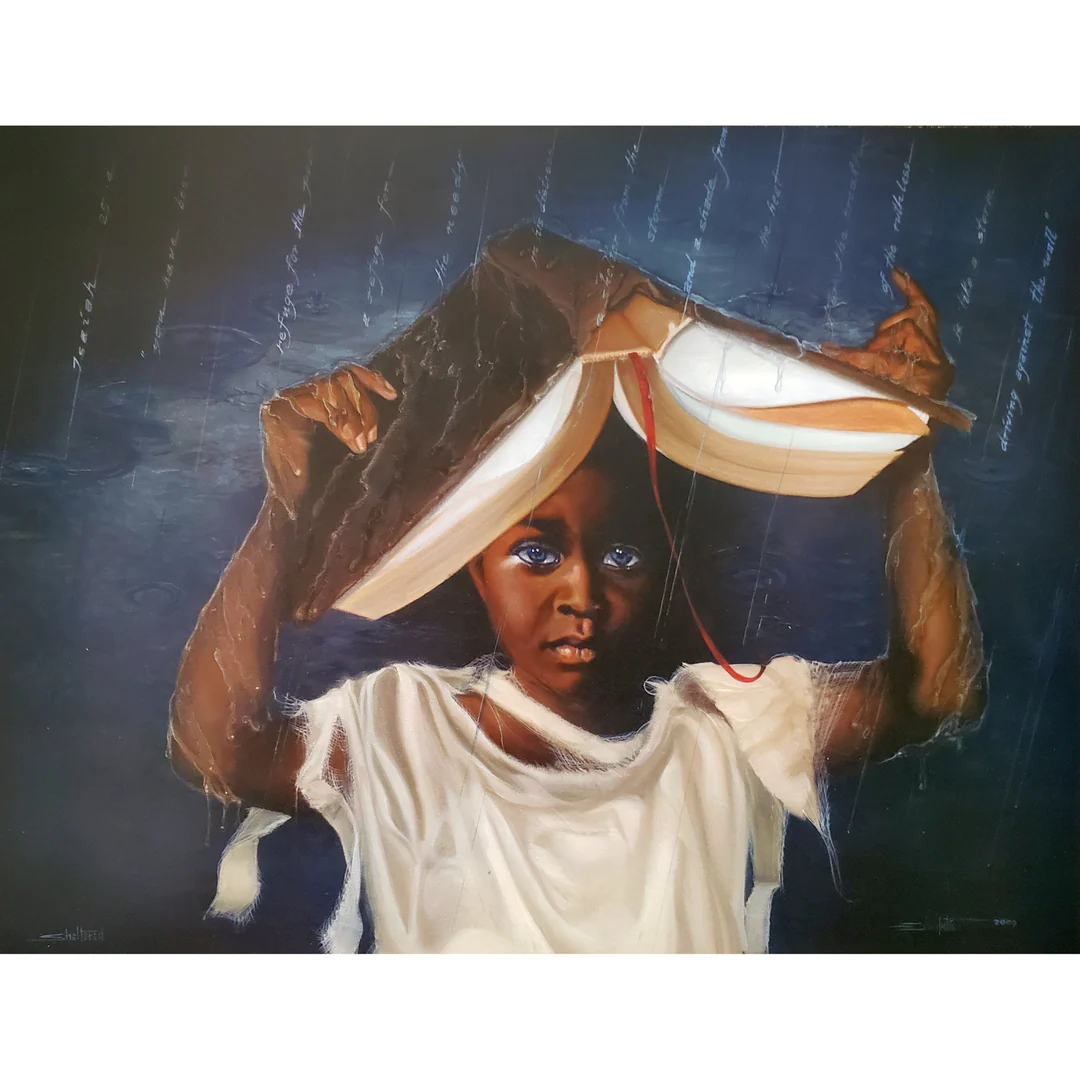
Supporting Black artists is a great Black History Month celebration ideas. We suggest purchasing framed art prints created by your local community of Black artists. You can purchase prints online at Etsy or The Black Art Depot. After you buy framed artwork, hang the pieces up in your office lobby or break room. You can also hang brief biographies of each artist below their work.
Celebrate with Appreciation
Celebrate the ethnicity of every member of your congregation! Hang flags from all your members’ nations of ancestry in the sanctuary, have a potluck with foods from their culture and ancestral homelands, or have members dress in the attire of their ancestral country.
Racial Reconciliation Sunday
Racial Reconciliation Sunday is the second Sunday in February of every year. It’s not talked about much in many of our churches these days, but it is a great time to make an intentional effort to broaden our churches’ reach and understanding. It’s a great idea to have a pulpit exchange with a preacher and/or choir coming from a church of a different ethnicity than the prominent ethnicity in your church.
Movie Night
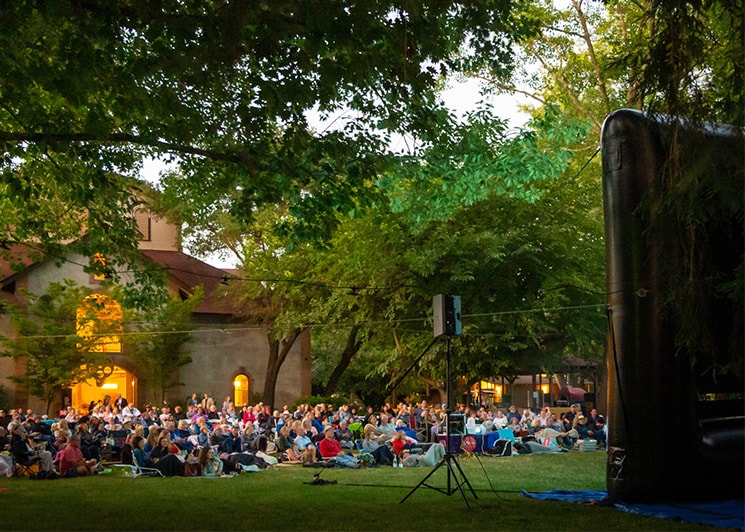
Have mixed racial groups watch a modern movie that highlight a portion of Black history and have a discussion afterward. Here a few to consider: Hidden Figures, Race, 12 Years a Slave, Selma, 42, Just Mercy, Men of Honor, The Help, or Harriett. (Note: Some of these films are gruesome in their depictions and discretion is required.)
Bible Study
Lead a Bible study with your eyes open and your antenna raised. Consider studying “Galatians: Accepted and Free” by Jada Edwards or “God and Race” by John Siebeling and Wayne Francis. It’s an important part of our Christian education that we not overlook any story.
Book Clubs
Invite people to join book clubs that read and have a four-week discussion around the book, Removing the Stain of Racism in the Southern Baptist Convention or perhaps The Color of Compromise: The Truth about the American Church’s Complicity in Racism
Sermon Series
- Rhythm of Life: A series about issues using popular songs to express the theme of each message. Some titles might be “God Bless the Child,” “Respect,” “We Are Family,” “I Believe I Can Fly,” and “If This Isn’t Love.”
- We’ve Come this Far By Faith: A series tying the faith of the Patriarchs to the faith that has sustained our people.
- Strength from the Spirituals. Some themes might be “Go Down Moses,” “God Put a Rainbow in the Sky”
- Becoming Brothers: A series from Philemon on how to grow beneficial relationships that bring out the racial and class overtones in the text.
Songs to Sing on a Sunday
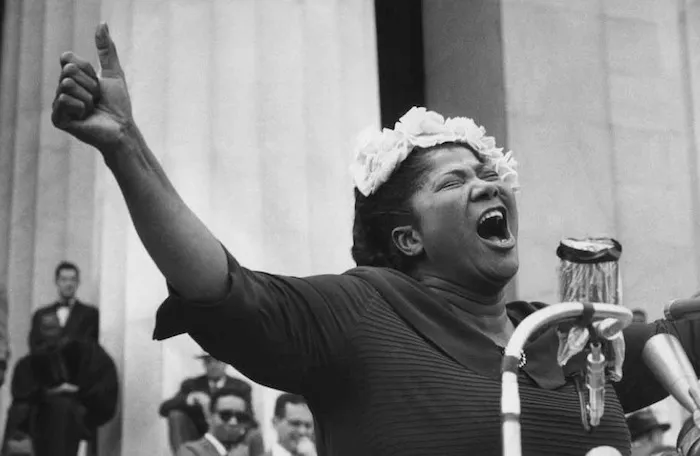
There are some beautiful and inspiring songs that you can easily incorporate into a Sunday worship set. Below are just a few examples of songs that touch our hearts to this day.
“Stand By Me” Written and originally performed by Ben E. King
“A Change is Gonna Come” Written and originally performed by Sam Cooke
“Talkin’ Bout a Revolution” Written and originally performed by Tracy Chapman
“Celebration” Written and originally performed by Kool & The Gang
“Lean on Me” Written and originally performed by Bill Withers
Poems to Read
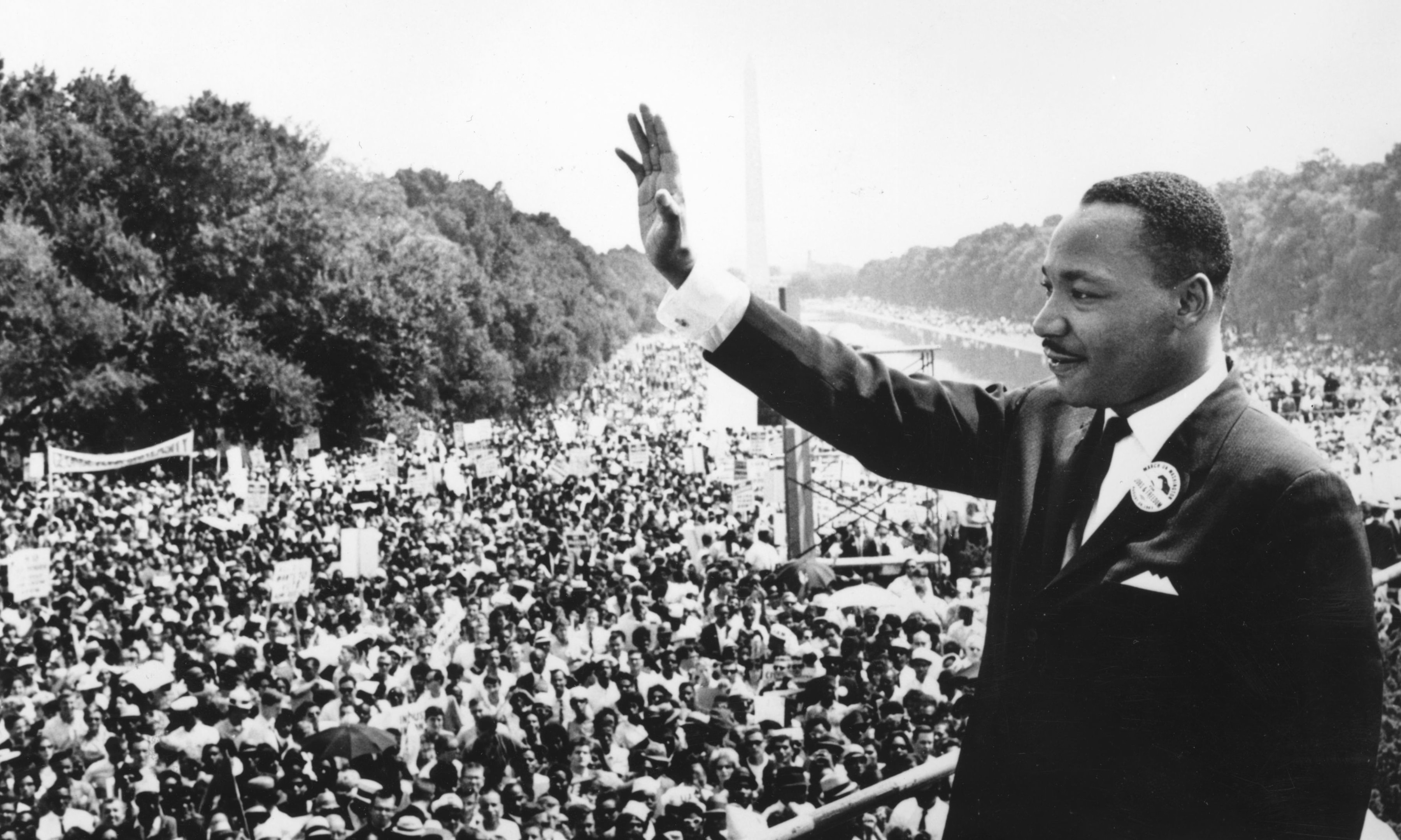
Below are excerpts of inspiring words written by famous leaders of the Civil Rights Movement and early Civil Rights activists working towards equality. Although not a “poem,” we’ve included an excerpt from Martin Luther King Jr.’s “I Have a Dream” speech because it is historically one of the most famous speeches to this day regarding race.
I Have a Dream by Martin Luther King Jr.
“I have a dream that my four little children will one day live in a nation where they will not be judged by the color of their skin but by the content of their character. I have a dream today.
I have a dream that one day every valley shall be exalted, every hill and mountain shall be made low, the rough places will be made plain, and the crooked places will be made straight, and the glory of the Lord shall be revealed, and all flesh shall see it together.”
Caged Bird
By Maya Angelou
“The caged bird sings / with a fearful trill
of things unknown / but longed for still
and his tune is heard / on the distant hill
for the caged bird / sings of freedom.
The free bird thinks of another breeze / and the trade winds soft through the sighing trees
and the fat worms waiting on a dawn bright lawn / and he names the sky his own.”
Lift Every Voice and Sing
“God of our weary years, God of our silent tears,
Thou who hast brought us thus far on the way; Thou who hast by Thy might
Led us into the light, Keep us forever in the path, we pray.
Lest our feet stray from the places, our God, where we met Thee,
Lest, our hearts drunk with the wine of the world, we forget Thee;
Shadowed beneath Thy hand, May we forever stand.
True to our God, True to our native land.”
More Than Just History
We celebrate Black History month every year, and February is approaching. Consider switching up your service by including a song, poem or guest speaker on a Sunday.
These were just a few great ideas for you to incorporate, but don’t forget to ask your own congregation members that are a part of the African American community for other ideas. Together, we can remember the history, and honor the sacrifices of many.

